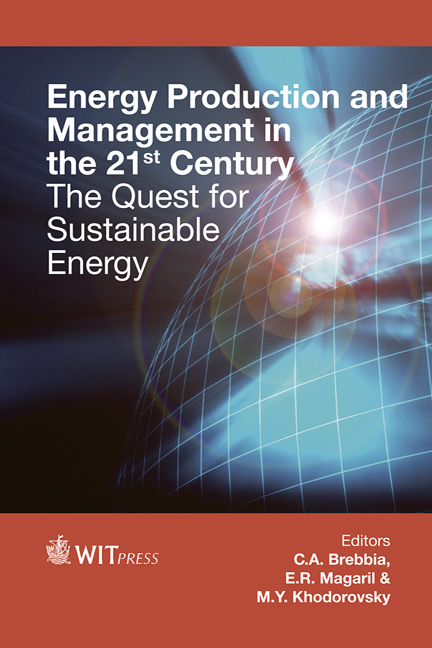New Energy-saving Technologies In Transport Energy
Price
Free (open access)
Transaction
Volume
190
Pages
7
Page Range
677 - 683
Published
2014
Size
400 kb
Paper DOI
10.2495/EQ140641
Copyright
WIT Press
Author(s)
E. Lazarev & G. Lomakin
Abstract
Diesel engines being self-contained power plants are the most promising energy sources in transport from the point of view of saving natural resources. In order to improve the fuel efficiency and power density of diesel engines for further development of transport energy, requires using energy-saving technologies. Such technologies to create diesel engines are based on a comprehensive improvement and optimization of operating cycle and its comprising processes. Special attention is paid to ensuring the effective combustion of fuel within the constraints imposed by the emission of harmful substances in the exhausting gases and the thermo-mechanical loaded parts. In order to evidence-based selection, method of management of combustion process on the basis of analysis of physical and chemical characteristics of processes developed intracylinder refined mathematical model of combustion of fuel in diesel engines. The basis of determining efficiency of selection and management of combustion process is a differentiated approach to the assessment of the control actions. According to the results of computational and experimental synthesis cycle in diesel engines, basic principles of fuel control combustion process were developed. Implementation of the developed guidelines and best management practices during the combustion process of fuel improves technical level and competitiveness of diesel engines, improves fuel efficiency by 5 ... 7%, reduces thermo-mechanical loading, maximum temperature and pressure of gas in Energy Production and Management in the 21st Century, Vol. 1 677 www.witpress.com, ISSN 1743-3541 (on-line) WIT Transactions on Ecology and The Environment, Vol 190, © 2014 WIT Press doi:10.2495/EQ140641 cylinder by 5 ... 6% and emissions including – particulate matter (soot) – 25 ... 30% and nitrogen oxides – 18 ... 20%, common and high levels noise of operating diesel reduces by 2 ... 2.5% and by 5 ... 7%, respectively. Keywords: diesel, fuel economy, duty cycle, methods and principles of management of the process combustion of fuel.
Keywords
diesel, fuel economy, duty cycle, methods and principles of management of the process combustion of fuel.





